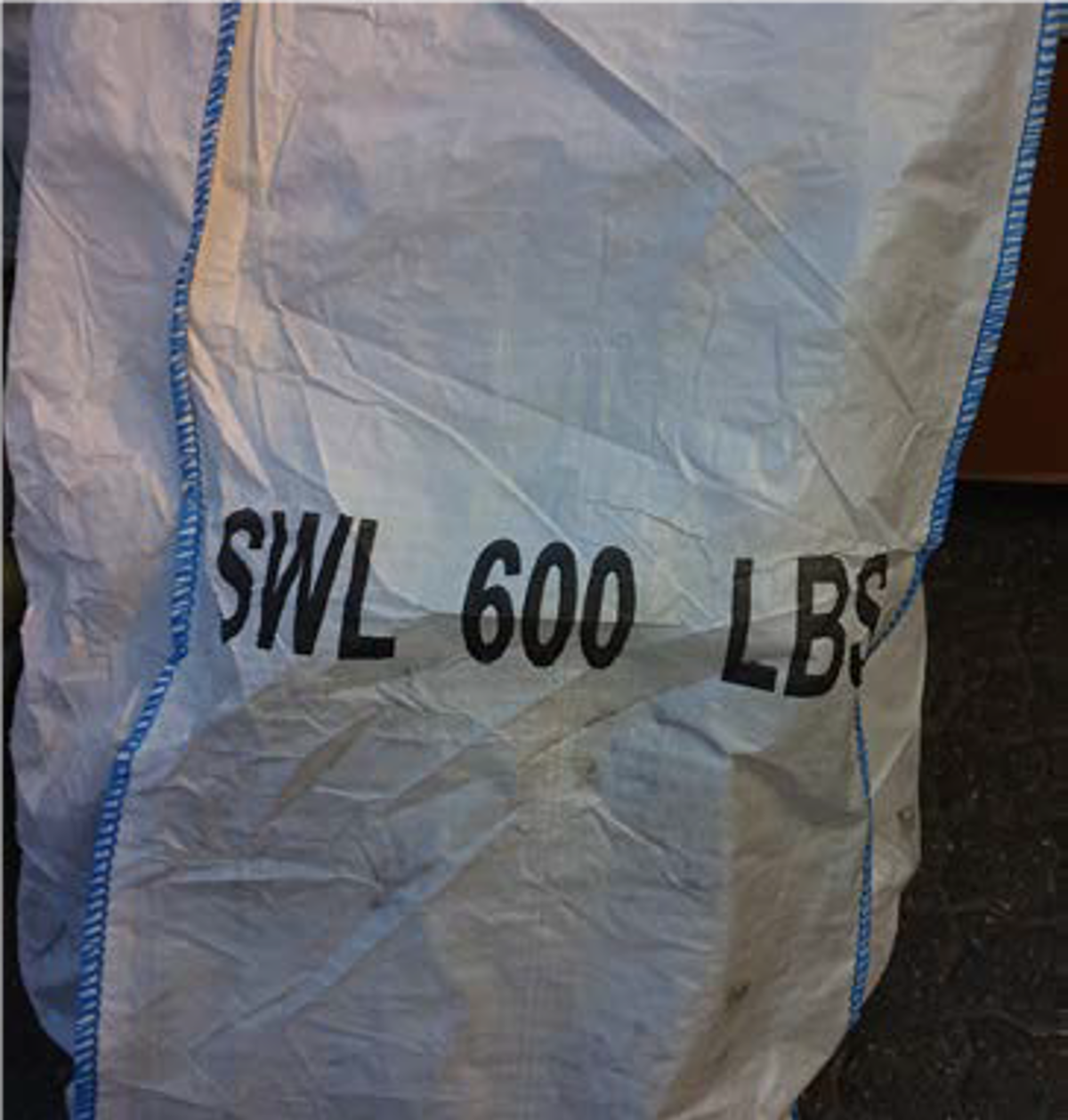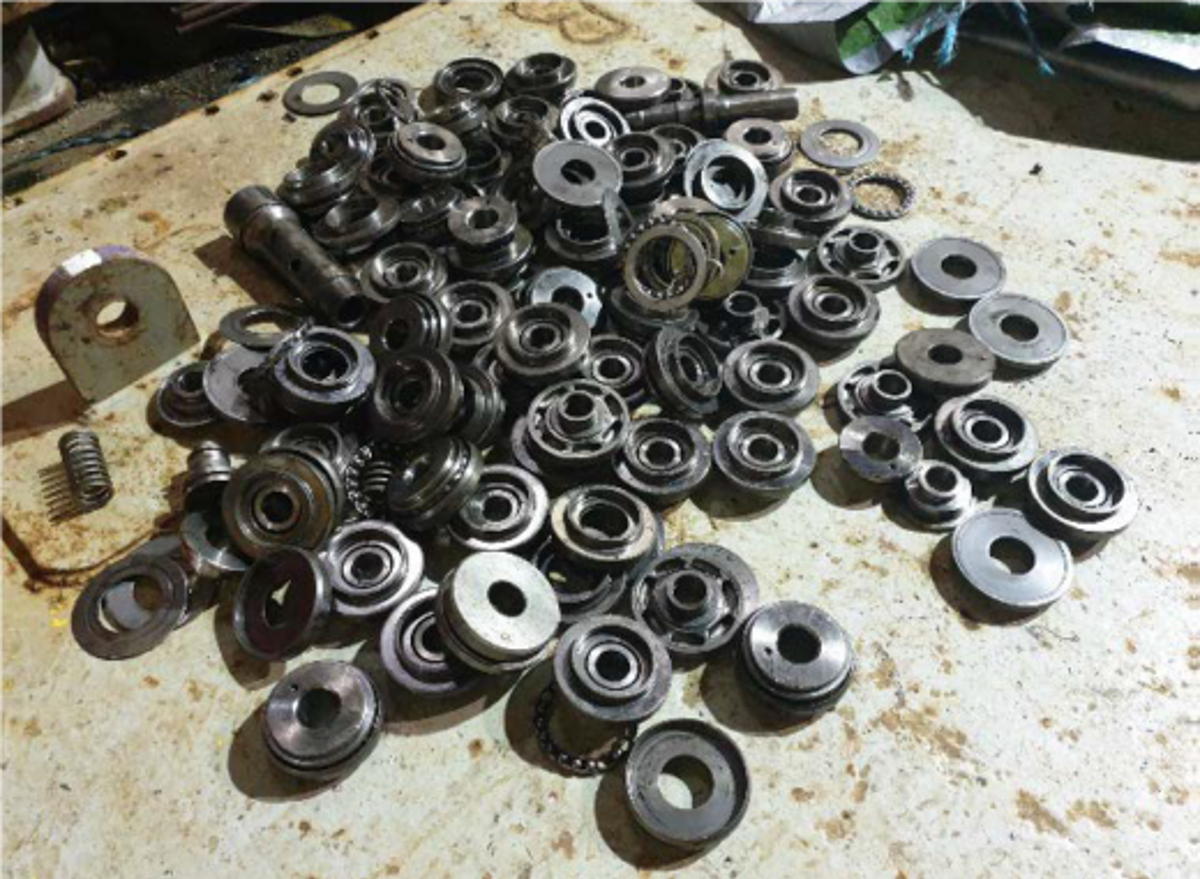Lifting operation resulting in dropped objects from flexible intermediate bulk container
- Safety Flash
- Published on 17 March 2020
- Generated on 2 July 2025
- IMCA SF 10/20
- 2 minute read
Jump to:
Multiple metal objects were dropped during a lifting operation using a flexible intermediate bulk container (FIBC)
What happened?
The FIBC was being used to lift garbage from a below-deck stores area. The lift crew were unaware that several metal components ranging from 1.1 - 2.3 kg had been placed into the FIBC and then inadvertently covered over with cardboard and paper.
As the FIBC came through the hatch and over the main deck, high winds forced the FIBC into contact with the crane boom resulting in a shock load to the bag and the bottom tearing open. The lift supervisor called an all stop on the radio; however, this was not heard by the crane driver which then resulted in the contents being dropped across the deck and quayside.
The distance that the objects fell varied between 8 and 25 metres. The DROPS calculations indicate that multiple items had the potential to cause a fatality.
The job was stopped and a time out for safety carried out.


Type of FIBC used for lifting operation

Type of engine components which fell
What actions were taken?
Our Member’s investigation noted the following:
- Inspect FIBCs prior to use ensuring they are free from damage that can compromise its strength.
- Post signage next to any FIBC being used as a waste container indicating waste material type to be placed inside.
- Check FIBC contents (where practical) to ensure correct waste type is inside prior to lifting.
- Lift FIBC as per the manufacturer and supplier’s instructions.
- Consider the use of tag lines to control lifts where practical.
- Do not re-use FIBCs or use them for disposal of waste metals, wood, glass or other items than can puncture the bag.
- Ensure the vessel has the appropriate storage containers for scrap metal.
- Ensure that suitable lift baskets are available for the transportation or movement of loose items, such as metals, batteries etc.
Related Safety Flashes
-
IMCA SF 09/18
24 April 2018
-
-
IMCA SF 08/18
11 April 2018
-
IMCA Safety Flashes summarise key safety matters and incidents, allowing lessons to be more easily learnt for the benefit of the entire offshore industry.
The effectiveness of the IMCA Safety Flash system depends on the industry sharing information and so avoiding repeat incidents. Incidents are classified according to IOGP's Life Saving Rules.
All information is anonymised or sanitised, as appropriate, and warnings for graphic content included where possible.
IMCA makes every effort to ensure both the accuracy and reliability of the information shared, but is not be liable for any guidance and/or recommendation and/or statement herein contained.
The information contained in this document does not fulfil or replace any individual's or Member's legal, regulatory or other duties or obligations in respect of their operations. Individuals and Members remain solely responsible for the safe, lawful and proper conduct of their operations.
Share your safety incidents with IMCA online. Sign-up to receive Safety Flashes straight to your email.